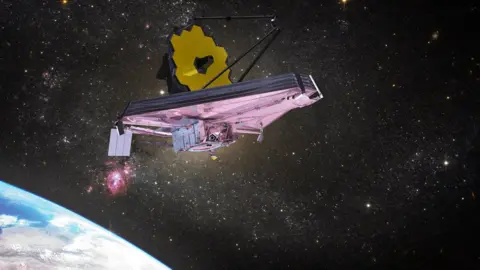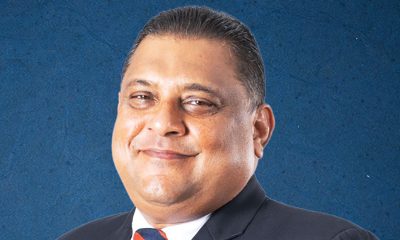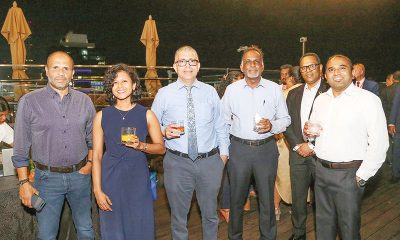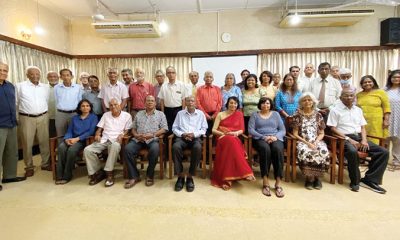Latest News
It is crucial that we put the country first and not fall prey to narrow political interests at this critical juncture – President

President Ranil Wickremesinghe, in his International Workers’ Day message said that it was crucial that we put the country first and not fall prey to narrow political interests at this critical juncture.
The full text of the President’s Laour Day Message:
On International Workers’ Day, it is important to recognize the significant role that the working people play in the economic progress of a country. In Sri Lanka, they have been a driving force behind the country overcoming challenges and leading the nation forward throughout history.
Last year, the country endured a severe economic collapse. The workers played a crucial role in patiently and courageously supporting the country as we waited to take the difficult initial steps in stabilizing the economy. As we celebrate this year’s May Day, we should take the opportunity to show the world the pride of the workers of Sri Lanka.
It is crucial that we put the country first and not fall prey to narrow political interests at this critical juncture. The government has always worked to secure the rights of the working public. By ensuring their rights and privileges, we hope to create a brighter future where the value of labour is recognized.
The government is committed to protecting the Employees’ Provident Fund, which was established for the benefit of the working people. Despite attempts by some parties to create undue fear regarding the Provident fund, I give my assurances that we will not allow it to be misused.
We invite all the working people of Sri Lanka to join hands as we undertake a new reformist path of building a prosperous Sri Lanka by 2048. We congratulate them on this meaningful International Labour Day where their rights are secured. The working people are a social force that can exert a stronger influence on the entire economic process of the country, and we must continue to value and support their contributions.
Latest News
Scientists find ‘strongest evidence yet’ of life on distant planet

Scientists have found new but tentative evidence that a faraway world orbiting another star may be home to life.
A Cambridge team studying the atmosphere of a planet called K2-18b has detected signs of molecules which on Earth are only produced by simple organisms.
This is the second, and more promising, time chemicals associated with life have been detected in the planet’s atmosphere by Nasa’s James Webb Space Telescope (JWST).
But the team and independent astronomers stress that more data is needed to confirm these results.
The lead researcher, Prof Nikku Madhusudhan, speaking at his lab at Cambridge University’s Institute of Astronomy said that he hopes to obtain the clinching evidence soon.
“This is the strongest evidence yet there is possibly life out there. I can realistically say that we can confirm this signal within one to two years.”
K2-18b is two-and-a-half times the size of Earth and is 700 trillion miles, or 124 light years, away from us – a distance far beyond what any human could travel in a lifetime.
JWST is so powerful that it can analyse the chemical composition of the planet’s atmosphere from the light that passes through from the small red Sun it orbits.
The Cambridge group has found that the atmosphere seems to contain the chemical signature of at least one of two molecules that are associated with life: dimethyl sulphide (DMS) and dimethyl disulphide (DMDS). On Earth, these gases are produced by marine phytoplankton and bacteria.
Prof Madhusudhan said he was surprised by how much gas was apparently detected during a single observation window. “The amount we estimate of this gas in the atmosphere is thousands of times higher than what we have on Earth,” he said. “So, if the association with life is real, then this planet will be teeming with life,” he added.
Prof Madhusudhan went further: “If we confirm that there is life on K2-18b, it should basically confirm that life is very common in the galaxy.”
He told BBC Radio 5Live on Thursday: “This is a very important moment in science, but also very important to us as a species. “If there is one example, and the universe being infinite, there is a chance for life on many more planets.”
Dr Subir Sarkar, a lecturer in astrophysics at Cardiff University and part of the research team, said the research suggests K2-18b could have an ocean which could be potentially full of life – though he cautioned scientists “don’t know for sure”.
He added that the research team’s work will continue to focus on looking for life on other planets: “Keep watching this space.”
There are lots of “ifs” and “buts” at this stage, as Prof Madhusudhan’s team freely admits.
Firstly, this latest detection is not at the standard required to claim a discovery.
For that, the researchers need to be about 99.99999% sure that their results are correct and not a fluke reading. In scientific jargon, that is a five sigma result.
These latest results are only three sigma, or 99.7%. Which sounds like a lot, but it is not enough to convince the scientific community. However it is much more than the one sigma result 0f 68% the team obtained 18 months ago. which was greeted with much skepticism at the time.
But even if the Cambridge team obtains a five sigma result, that won’t be conclusive proof that life exists on the planet, according to Prof Catherine Heymans of Edinburgh University and Scotland’s Astronomer Royal, who is independent of the research team.
“Even with that certainty, there is still the question of what is the origin of this gas,” she told BBC News.
“On Earth it is produced by microorganisms in the ocean, but even with perfect data we can’t say for sure that this is of a biological origin on an alien world because loads of strange things happen in the Universe and we don’t know what other geological activity could be happening on this planet that might produce the molecules.”
That view is one the Cambridge team agree with. They are working with other groups to see if DMS and DMDS can be produced by non-living means in the lab.
“There is still a 0.3% chance that it might be a statistical fluke,” Prof Madhusudhan said.
Suggesting life may exist on another planet was “a big claim if true”, he told BBC Radio 4’s Today programme, adding: “So we want to be really, really thorough, and make more observations, and get the evidence to the level that there is less than a one-in-a-million chance of it being a fluke.”
He said this should be possible in “maybe one or two years”.
Other research groups have put forward alternative, lifeless, explanations for the data obtained from K2-18b. There is a strong scientific debate not only about whether DMS and DMDS are present but also the planet’s composition.
The reason many researchers infer that the planet has a vast liquid ocean is the absence of the gas ammonia in K2-18b’s atmosphere. Their theory is that the ammonia is absorbed by a vast body of water below.
But it could equally be explained by an ocean of molten rock, which would preclude life, according to Prof Oliver Shorttle of Cambridge University.
“Everything we know about planets orbiting other stars comes from the tiny amounts of light that glance off their atmospheres. So it is an incredibly tenuous signal that we are having to read, not only for signs of life, but everything else,” he said.
“With K2-18b part of the scientific debate is still about the structure of the planet.”
Dr Nicolas Wogan at Nasa’s Ames Research Center has yet another interpretation of the data. He published research suggesting that K2-18b is a mini gas giant with no surface.
Both these alternative interpretations have also been challenged by other groups on the grounds that they are inconsistent with the data from JWST, compounding the strong scientific debate surrounding K2-18b.
Prof Chris Lintott, presenter of the BBC’s The Sky at Night, said he had “great admiration” for Prof Madhusudhan’s team, but was treating the research with caution.
“I think we’ve got to be very careful about claiming that this is ‘a moment’ on the search to life. We’ve [had] such moments before,” he told Today.
He said the research should be seen instead as “part of a huge effort to try and understand what’s out there in the cosmos”.
Prof Madhusudhan acknowledges that there is still a scientific mountain to climb if he is to answer one of the biggest questions in science. But he believes he and his team are on the right track.
“Decades from now, we may look back at this point in time and recognise it was when the living universe came within reach,” he said.
“This could be the tipping point, where suddenly the fundamental question of whether we’re alone in the universe is one we’re capable of answering.”
The research has been published in The Astrophysical Journal Letters.

[BBC]
Latest News
UK bans EU cheese and meat to stop disease spreading

The UK government has brought in a temporary ban on holidaymakers bringing in cheese and meat products from the EU in a bid to prevent the spread of foot and mouth disease (FMD).
Travellers have not been allowed to bring back items such as cured meat and cheese, including in sandwiches, since Saturday due to the growing outbreak on the continent.
The restrictions apply regardless of whether the goods are packed or packaged, or bought from duty free.
It follows an earlier ban of similar products from Germany, Hungary, Slovakia and Austria after rising cases of the cattle disease in those countries.
FMD is a highly infectious virus that causes blisters inside an animal’s mouth and under their hooves, and can cause lameness and problems feeding.
It causes no risk to humans and there are currently no cases of foot-and-mouth disease in the UK.
Any products of animal origin, like meat and dairy, could potentially be contaminated with FMD.
There are concerns that if contaminated products enter the UK, even if they are designed for human consumption, there is a chance that they could be consumed by animals – for instance if they are thrown away in a way that could come into contact with foraging wildlife or domestic livestock.
The restrictions apply to people arriving in Great Britain, not Northern Ireland, Jersey, Guernsey, or the Isle of Man.
Products will be seized and destroyed if people try to bring them in, and in “serious cases” people could be fined up to £5,000.
The list of restricted products includes:
- pork
- beef
- lamb
- mutton
- goat
- venison
- other products made from these meats, for example sausages
- milk and dairy products like butter, cheese and yoghurt
People can bring up to 2kg per person of powdered infant milk, infant food, or special food needed for medical reasons.
In 2001, an outbreak of FMD in the UK led to the culling of millions of animals. Although there were only 2,000 confirmed cases, more than six million sheep, cattle and pigs were slaughtered.
This is because each of those cases meant a farm having all of its livestock killed and burned.
The last outbreak of FMD in the UK was in 2007, although this was much smaller with only eight infected premises concentrated in one small area of the country.
Tom Bradshaw, the president of the National Farmers Union (NFU), said the government had been quick to bring in the initial ban and the NFU was glad it was now being extended.
“While the FMD source remains unidentified in parts of Europe, stricter border controls are essential,” he said.
“It’s imperative we have a comprehensive cross-government biosecurity plan with the necessary investment behind it, and which would place these restrictions on a permanent legislative footing.”
The Guild of Fine Food, which represents independent food and drink retailers, said the ban on “holiday treats” had been “hurried”, but added it brought UK government policy for holidaymakers more in line with restrictions already placed on small businesses.
“The food and drink industry absolutely supports the fact that we must protect our farmers and that biosecurity is paramount,” said John Farrand, managing director of the Guild of Fine Food.
However, he said that “bureaucracy” brought in after Brexit had added “significant constraints” for small food and drink importers and exporters.
[BBC]
Latest News
Trump administration threatens Harvard with foreign student ban

The US government has threatened to ban Harvard University from enrolling foreign students, after the institution said it would not bow to demands from Donald Trump’s administration.
The White House has demanded the oldest university in the US make changes to hiring, admissions and teaching practices which it says will help fight antisemitism on campus.
Homeland Security Secretary Kristi Noem on Wednesday accused the Ivy League school of “threatening national security” and “bending the knee to antisemitism”.
She also demanded records on its foreign student visa holders’ “illegal and violent” activities. International students make up more than 27% of Harvard’s enrolment this year.
“The university will not surrender its independence or relinquish its constitutional rights,” Harvard President Alan Garber wrote in a message on Monday to the Harvard community.
Billions of dollars hang in the balance for the university – authorities have frozen $2.2 bn (£1.7bn) in federal funds, while Trump earlier threatned to also remove a valuable tax exemption, the loss of which could cost Harvard millions of dollars each year.
“Harvard can no longer be considered even a decent place of learning, and should not be considered on any list of the World’s Great Universities or Colleges,” Trump said on his Truth Social platform on Wednesday.
“Harvard is a JOKE, teaches Hate and Stupidity, and should no longer receive Federal Funds.”
The administration’s attacks on Harvard are not isolated.
During his presidential campaign, Trump pitched a funding crackdown on universities, painting them as hostile to conservatives.
Since taking office, his administration has focused particularly on colleges where pro-Palestinian protests have taken place. Some Jewish students have said they felt unsafe and faced harassment on campus.
The government’s antisemitism task force, formed in February, has identified at least 60 universities for review.
In March, Columbia University, agreed to several of the administrations demands, after $400m (£310m) in federal funding was pulled over accusations the university failed to fight antisemitism on campus.
These included replacing the official leading its Middle Eastern, South Asian and African Studies department and pledging to take on a review to “ensure unbiased admission processes”.
Harvard too has made concessions.
Last month, it dismissed the leaders of its Center for Middle Eastern Studies, who had come under fire for failing to represent Israeli perspectives.
Harvard has not publicly responded to Noem’s latest demands.
[BBC]
-

 News6 days ago
News6 days agoSuspect injured in police shooting hospitalised
-

 Features7 days ago
Features7 days agoRobbers and Wreckers
-

 Business7 days ago
Business7 days agoBhathiya Bulumulla – The Man I Knew
-

 Business6 days ago
Business6 days agoSanjiv Hulugalle appointed CEO and General Manager of Cinnamon Life at City of Dreams Sri Lanka
-

 Features5 days ago
Features5 days agoLiberation Day tariffs chaos could cause permanent damage to US economy, amid global tensions
-

 Business5 days ago
Business5 days agoMembers’ Night of the Sri Lanka – Russia Business Council of The Ceylon Chamber of Commerce
-

 Features5 days ago
Features5 days agoMinds and Memories picturing 65 years of Sri Lankan Politics and Society
-

 News6 days ago
News6 days agoLankan security forces Humanitarian Assistance and Relief Team working in Myanmar
























